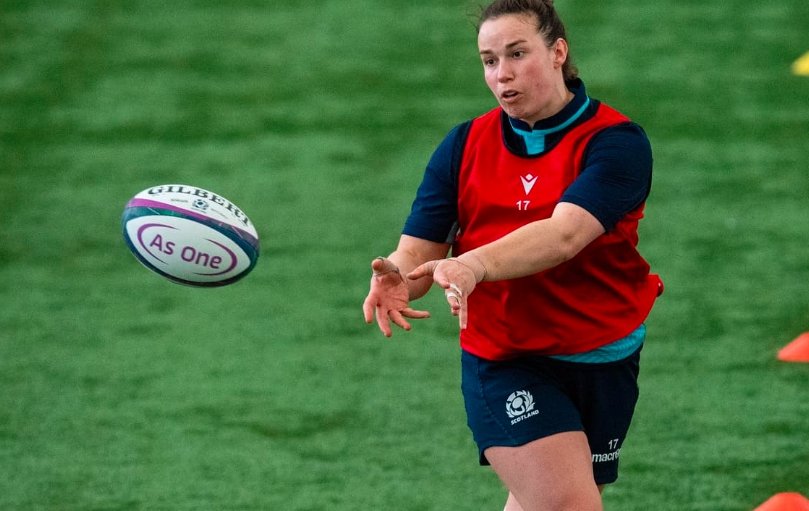Scotland women’s captain Rachel Malcolm has hit out at the “disruptive” build-up to the Rugby World Cup, saying her squad has been left in an “unfair” position by uncertainty over contracts and the shock news of their head coach’s departure.
The blunt assessment comes as the team faces not just the physical demands of tournament preparation, but also a string of off-pitch distractions threatening to sap morale.
Contract Chaos Creates Anxiety
Some players still don’t know if they’ll have a contract once the final whistle blows at the World Cup.
It’s August, the tournament is just around the corner, and for many the future feels alarmingly hazy.
Malcolm didn’t mince her words. She called the uncertainty “disruptive” and admitted the issue has been simmering for months.
That uncertainty isn’t just a logistical headache. It’s an emotional drain. A professional athlete’s life is tied to structure — training blocks, game plans, recovery schedules. When the pay cheque is in question, it messes with everything else.
And for some, that means they’re preparing for the biggest competition of their lives while quietly wondering if they’ll need a new job when it’s over.

Head Coach Departure Lands Like a Bombshell
The second jolt came when Bryan Easson, head coach since 2020, confirmed he’ll step down after the tournament.
Malcolm says the squad learned the news recently — and it was “quite upsetting” to hear so close to kickoff.
One sentence from her summed it up: “It hasn’t been ideal prep whatsoever.”
Changing a head coach is disruptive in any sport. Doing it on the eve of a World Cup? That’s like switching pilots mid-flight. The systems are still in place, sure, but the trust and familiarity between a coach and players take years to build.
For a squad trying to sharpen its game plan, Easson’s impending exit adds another layer of uncertainty.
A Captain Fighting for Team Spirit
Malcolm’s style as captain is simple: make every player feel like a superhero.
She wants them to feel valued. She wants them to feel like they belong.
But as she admitted, “the processes which have gone on behind the scenes have definitely done almost the opposite.”
That’s the part that stings. Sport at this level is as much about belief as it is about skill. When the back-office noise is loud enough to drown out the on-field focus, something’s wrong.
Her frustration isn’t about soundbites — it’s about protecting her squad’s mindset in the weeks before they face the best in the world.
The Bigger Picture: Professional Rugby’s Growing Pains
What’s happening in Scotland isn’t unique. Women’s rugby is still building its professional foundations.
Contracts, pay equity, and resource allocation are still being ironed out across many nations.
A look at recent developments shows how far things have to go:
| Country | Women’s Pro Contracts | Average Annual Pay | Notable Issue 2024-25 |
|---|---|---|---|
| England | Yes | £30,000–£40,000 | Salary cap debate |
| New Zealand | Yes | NZ$60,000+ | Travel allowances |
| Scotland | Limited contracts | £15,000–£20,000 | Uncertain renewals |
| Wales | Partial contracts | £19,000–£25,000 | Squad size cuts |
Scotland’s position is clear — smaller budgets mean harder choices. But those choices come with real human costs for players balancing rugby with other jobs.
Timing Couldn’t Be Worse
There’s no good moment for off-field drama, but this?
Weeks before a World Cup camp — it’s about as bad as it gets.
Preparation camps are meant to be a bubble. Players lock into routines, study opposition tape, and build chemistry. Outside distractions break that rhythm.
It’s not just the uncertainty about leadership and contracts. It’s also the unspoken fear that this kind of instability sends the wrong signal about the women’s programme as a whole.
In short, it chips away at confidence — not in the players’ abilities, but in the system supporting them.
What Happens Next
For now, the team pushes on.
Fixtures are set, training schedules are packed, and the World Cup countdown clock keeps ticking.
Malcolm will keep trying to shield her players from the noise, but she’s made it clear the situation isn’t fair. She’s not alone either — whispers from inside the squad suggest several senior players share her concerns.
Whether Scottish Rugby acts on those concerns before the tournament begins is another matter entirely.
One thing is certain: whatever happens in the boardroom, the squad will be judged by what happens on the pitch — and they’ll need to find a way to block out the static.


















